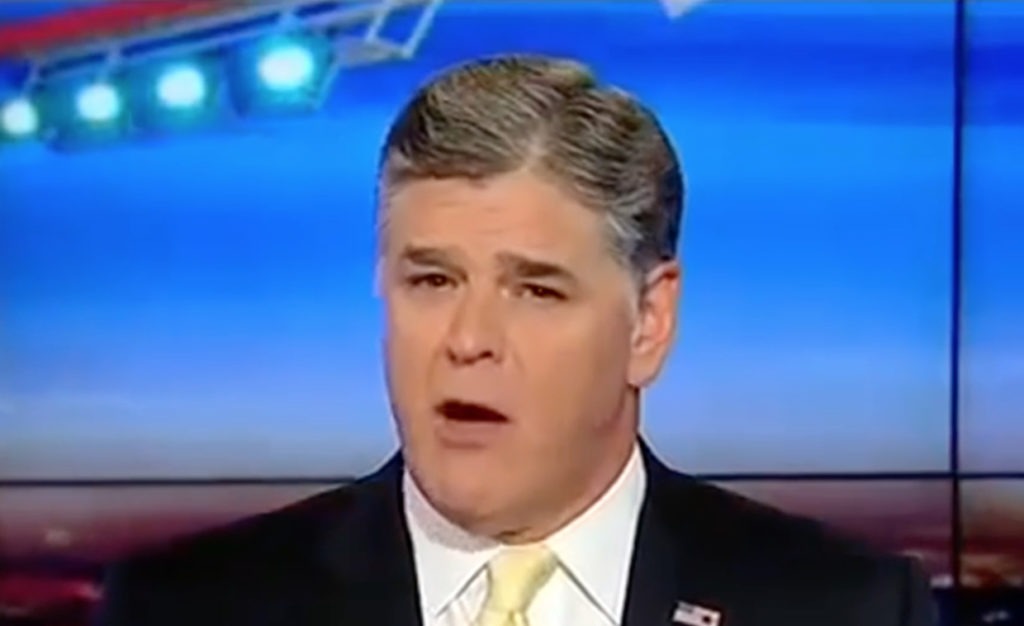Sean Hannity goes completely off the deep end as Donald Trump circles the drain

It’s hardly newsworthy anymore that Donald Trump has a meltdown over some trivial nonsense on Twitter – or that he’s breaking down over the wrong thing when he should be focused on a major screwup that he’s either directly or indirectly responsible for. On Tuesday night, however, the biggest outburst came not from Trump’s Twitter account, but from his favorite Fox pundit, Sean Hannity, whose show tonight was so outrageous and insane, the most offensive clip rapidly blew up on social media and even earned him the scorn of fellow right-wing Tea Party pundit Joe Walsh.
In a desperate attempt to make Donald Trump’s reckless response to George Floyd’s death seem reasonable, Sean Hannity may have in fact made things much worse for Trump and perhaps a number of fellow conservative pundits and politicians. Even though he said he wasn’t making any comparisons, Hannity decided it would be a good time to say that like George Floyd, Donald Trump was also the victim of crooked cops who damaged the country. There’s really no possible way to say this was taken out of context. He knew what he was doing by going there – inciting the same dangerous bigots spurred on by Donald Trump’s rallies.
If that idiotic rant that he used to justify his usual inane conspiracy theories wasn’t bad enough, he also thought it’d be a good time to promote a gun that shoots projectiles with pepper spray. While he may have been making himself out to be a good loyalist, it’s probably not going to look good for Trump to try and defend this trainwreck in any way – coming off the heels of him retweeting a QAnon conspiracy theory. Hannity’s comments also bring Russia back to the forefront, right when a judge wants William Barr to testify about the unredacted Mueller report. This is the worst possible look Republicans could have right now – and you can expect a few of them to throw this back at Hannity.
James Sullivan is the assistant editor of Brain World Magazine and an advocate of science-based policy making
